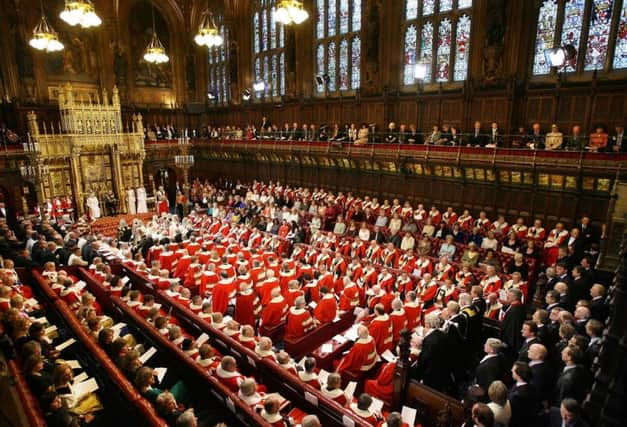Lords committee: ‘Scotland Bill will risk future of UK’


Members of the Lords constitution committee said that the powers going through Westminster would erode parliamentary sovereignty in the UK and lead to “uncertainty”.
The claim came after peers on the economic affairs committee last week said the future of the UK “could well be at risk” unless key issues, including the funding package, were resolved.
Advertisement
Hide AdAdvertisement
Hide AdIt said the bill should not proceed to the committee stage – the first stage where amendments can be made – until there is agreement on the funding of the Scottish budget and how it is adjusted once powers are devolved, the scrutiny of public revenues and spending, borrowing powers, fiscal rules and fiscal institutions.


However, the Lords constitution committee, chaired by former Scottish secretary Lord Lang, claimed that measures in the Scotland Bill seemed “designed to limit Parliament’s (Westminster’s) competence to legislate”.
The Conservative peer attacked what he said was the “hasty decision” by the leaders of the main three UK parties to implement the recommendations of the Smith Commission set up to deliver “the Vow” of more powers to Scots for voting No in the closing stages of the referendum campaign. Lord Lang also criticised the stating of the “permanence” of the Scottish Parliament as part of the bill and said the measures should be suspended until the UK and Scottish Governments can agree on how powers will be used.
He said: “The bill creates serious risks of future disputes and instability.
“The House should consider whether to delay progress of the bill until a new memorandum of understanding is published setting out how the UK and Scottish Governments will work together to manage areas of shared and concurrent powers, and how they will resolve disputes between their administrations.”
He added: “We also point out that at the root of many of the committee’s concerns about the bill is the inappropriate and urgent process by which these significant constitutional proposals have come about.
“In particular, the hasty decision, taken in advance by the leaders of the three main political parties, to implement the recommendations of the Smith Commission appears to have pre-empted any possibility of meaningful discussion on the merits of the proposals contained in the Bill.”
However, a spokesman for Deputy First Minister John Swinney: “The three main Westminster parties made a solemn Vow to the people of Scotland on the eve of the referendum, and it is imperative that the UK government delivers on the full package of powers recommended in the Smith Agreement.”